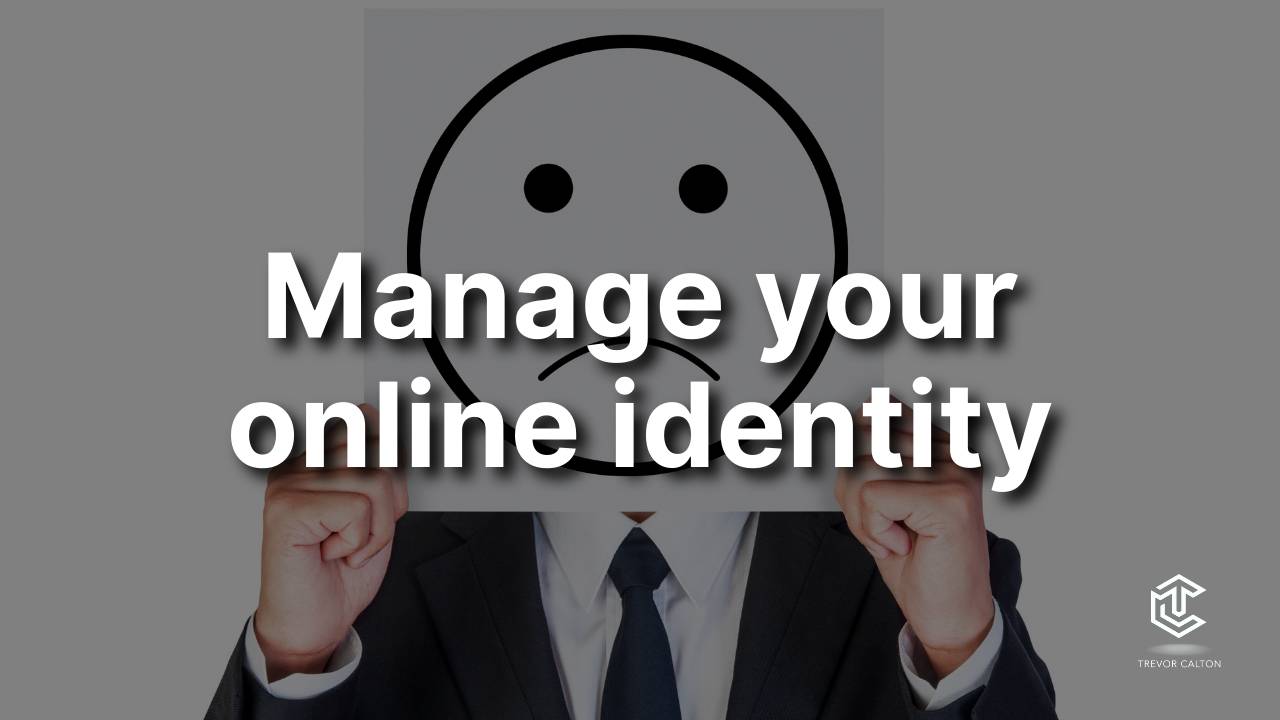Manage Your Online Identity... The Internet is Forever

by Trevor Calton
Like it or not, your online presence is your real first impression.
Before someone hires you, refers you, or even replies to your email, they Google you.
And what they find shapes what they believe.
So the question isn’t if you have an online identity. It’s whether you’re in control of it, or leaving it to chance.
You Don’t Need to Be Famous, Just Intentional
You don’t need to post daily or become an influencer.
But you do need to make sure that when someone looks you up, they see something that:
- Reflects who you are
- Aligns with what you want
- Reinforces your credibility
This matters whether you’re job searching, seeking a promotion, or growing your network.
What Most People Get Wrong
They ignore their online presence until it becomes a problem.
- Outdated bios
- Inconsistent job titles
- No clear sense of what they do
- Nothing that shows their personality or values
And when that happens, it creates doubt, or worse, disinterest.
Here’s How to Take Back Control
Step 1: Google Yourself
What shows up? What do you want to show up? Anything outdated, irrelevant, or confusing? Make a note.
Step 2: Start With LinkedIn
This is where most people check first. Make sure it’s up to date, focused, and sounds like you.
- Use a real photo
- Add a headline that reflects your strengths, not just your title
- Include a short, human summary that tells your story
Step 3: Audit Other Platforms
- Social Media?
- Groups?
- An old personal blog?
Decide what stays public, what gets cleaned up, and what needs boundaries.
Step 4: Add Something Real
Post a short update. Comment on a colleague’s win. Share something you learned.
It doesn’t have to be perfect. It just has to be present.
Consistency builds visibility. Visibility builds trust.
Your Online Presence Should Match the Real You
When someone finally meets you, it should feel familiar. Not like a bait and switch.
You don’t need to overshare. You just need to be clear, consistent, and real.
The Bottom Line
You already have an online identity. The only question is whether it’s helping you, or holding you back.
So take five minutes. Clean it up. Show up as the person you want to be remembered for.
Want to Learn How to Build a Career That Gets Noticed, Online and Off?
Career Building from the Inside Out teaches you how to align your values, your message, and your visibility, so the right people find you before you have to chase them. Explore the course
Want to teach this to your students, team, or organization? Book me to speak
Subscribe to
Career Building from the Inside Out
Get resources, motivation, guided activities, and other cool stuff delivered to your inbox:
We respect your privacy.

